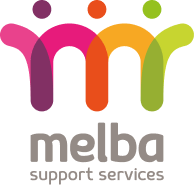Breaking barriers: Elevating disability leadership for a more inclusive future
December 2, 2024

As society becomes increasingly aware of the value of diverse perspectives in leadership, people with disability are stepping into influential roles across various sectors, from government to corporate and non-profit organisations.
Yet, despite their contributions, people with disability remain underrepresented in leadership positions due to enduring social, architectural and attitudinal barriers. Advocates are pushing for more inclusive leadership pathways, arguing that true representation means having people with lived experiences of disability at the table where decisions are made.
According to recent studies, people with disability hold fewer than one per cent of executive positions globally, despite representing about 15 per cent of the world’s population. The lack of representation in leadership is a complex issue, influenced by factors such as limited accessibility in workplaces, implicit bias, and insufficient support for career advancement. But as disability advocates and organisations highlight, integrating leaders with disability isn’t just about inclusion; it’s also beneficial to business, social change and policy development.
“Leaders with disabilities bring unique insights and problem-solving skills shaped by their lived experiences,” says Dr Sarah Graham, an inclusion consultant and advocate for disability leadership. “They have firsthand knowledge of the challenges many people face and they can introduce innovative approaches to address these needs in a way that’s impactful and authentic.”
For people with disability, the journey to leadership can be complex. Challenges include not only navigating physical barriers such as inaccessible office spaces but also confronting deeply ingrained misconceptions. According to a report from the Disability Rights Commission, many employees with disability report feeling “invisible” in professional settings or face assumptions they cannot perform at high levels.
Moreover, educational and workplace settings often lack adequate support systems for people with disability. Assistive technology, flexible working hours and customised training programs are critical yet frequently missing. Consequently, people with disability may struggle to access the same development opportunities as their peers.
However, there are promising signs of change. Initiatives such as the Disability Leadership Institute in Australia are encouraging workplaces to reconsider their approaches to hiring and promoting people with disability. These programs provide mentorship, networking and advocacy tools that aim to dismantle the barriers keeping qualified candidates out of leadership roles.
Despite the challenges, leaders with disability are already making a significant impact. In government, Senator Jordon Steele-John, Australia’s first Senator with cerebral palsy, has brought disability rights to the forefront of national conversation, advocating for policies that improve access to education, healthcare and employment for people with disability. His influence extends beyond policy; he demonstrates that people with disability are effective and resilient leaders, challenging stereotypes in the public eye.
The value of leaders with disability extends beyond their personal achievements. Studies show that diverse leadership teams are more innovative, resilient and responsive to a broader range of stakeholders. Disability-inclusive leadership leads to better policy and organisational outcomes, as leaders with disability understand the need for accessible products, spaces and services in a way that able-bodied leaders may not fully appreciate.
The rise of leaders with disability marks a step toward a more inclusive society. Yet, advocates argue that to build on this progress, workplaces must commit to change by addressing systemic barriers. This includes investing in accessibility, providing mentorship and networking opportunities, and fostering a culture that values diverse perspectives at all levels.
“We need to think about leadership differently,” Dr Graham says. “When people with disability are part of leadership, they bring resilience, creativity and insight that benefits everyone. We need these voices if we’re serious about creating a fair and inclusive society.”




